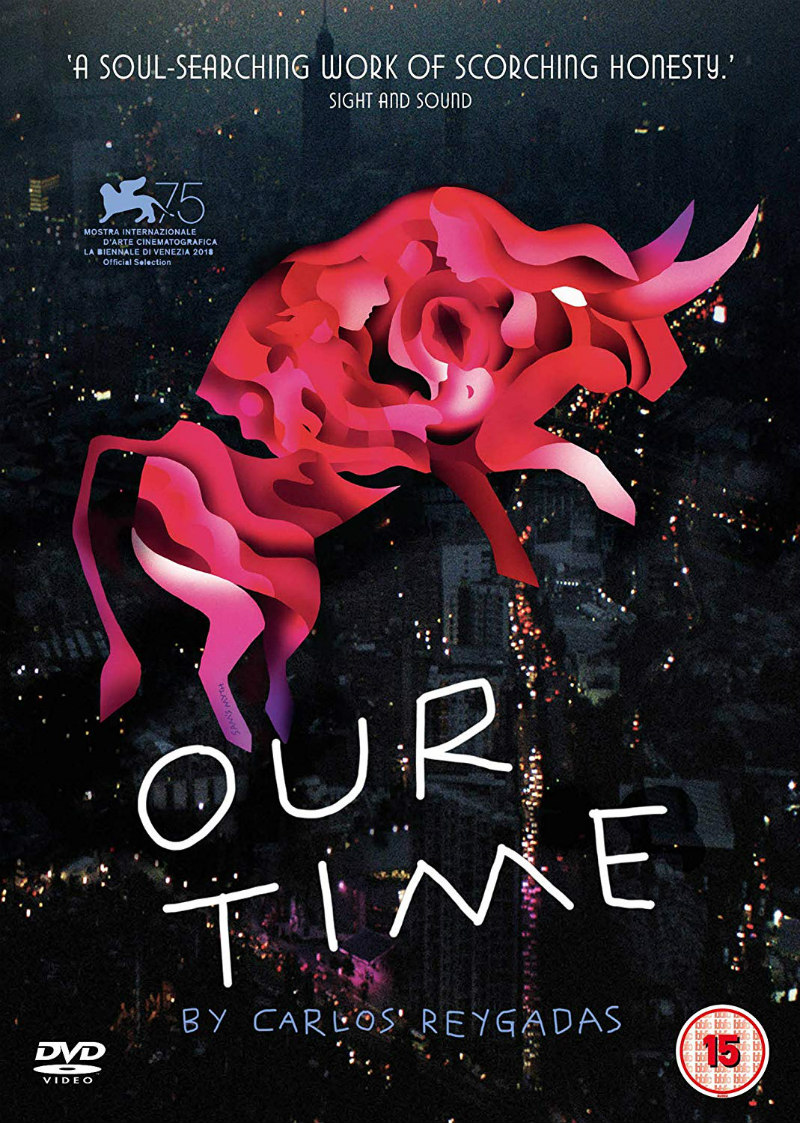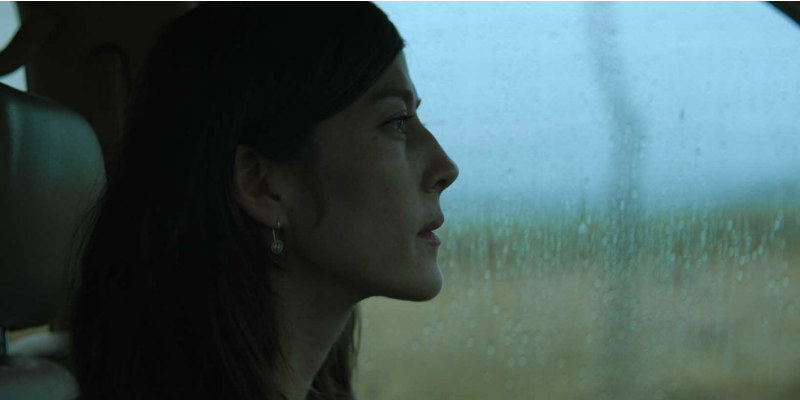Review by Eric Hillis
Directed by: Carlos Reygadas
Starring: Natalia López, Phil Burgers, Carlos Reygadas, Maria Hagerman, Yago Martínez

The most challenging, and thus perhaps the most interesting of Mexico's current crop of auteurs, Carlos Reygadas delivers his most accessible work to date with Our Time. Though implementing Reygadas' ongoing obsession with the natural and material world his characters' inhabit, it's essentially a straightforward relationship drama, though nothing about its particular relationship is remotely straightforward. As its relatively petty human drama unfolds against the backdrop of a cattle ranch, it often resembles an episode of Dallas directed by Terrence Malick.

Writer/director Reygadas gives himself the role of Juan, a successful poet who lives with his wife Esther (Reygadas' real-life wife Natalia López, an editor making her acting debut here) on their sprawling cattle ranch in central Mexico. Juan and Esther have successfully enjoyed an open relationship, with the former seeming to get off on his wife's dalliances with other men. When an old friend of Juan's, American horse breaker Phil (Phil Burgers), arrives in Mexico, Juan sets him up with work in the region, and also steers him into an affair with Esther. What Juan doesn't count on is Esther and Phil's relationship progressing beyond the sexual and into the realm of romance.
[ READ MORE: New To DVD - Woman At War ]
In the figure of Juan, Reygadas presents a man who appears to have conquered life at every turn. Could a poet really earn enough money to take over the sort of sprawling ranch that provides Our Time with its glorious backdrop? Or did the ranch come first, the poetry second? Either way, Juan seems on the surface to have this life business nailed. Ironically for a poet, Juan believes humans can be manipulated into roles without factoring in emotions. He reacts to his wife's falling for Phil by encouraging the affair, even though it's killing him inside. Juan believes this is the most civilised approach, and that allowing his wife to explore her feelings makes him appear a bigger man than Phil, who went behind his friend's back with his wife. What Juan is really doing of course is controlling his wife in his own way, offering her an illusion of emotional freedom, like the bulls who roam the fields of his ranch.

The natural world has always been as important to Reygadas as his human characters, and perhaps more so than ever in Our Time. The human complications of Juan, Esther and Phil are contrasted with the simplicity of the animals on Juan and Esther's ranch. In a telling scene, Juan finds his favourite horse refusing to obey his commands, while elsewhere Phil gently breaks a wild steed. In a scene that will prove upsetting to animal lovers, we watch a violent duel between two bulls that shockingly ends with the loser being pushed over the side of a steep cliff by the victor. If humans could deal with their relationships in such a manner, erasing love rivals with violence, perhaps Juan wouldn't find himself in his situation.
[ READ MORE: New To DVD - High Life ]
If you're familiar with the work of Reygadas, you know you're not in for a rollercoaster here. I'm not saying Our Time is leisurely paced, but at one point it took me a few minutes to realise my screener had frozen. That's not to say it's ever dull; far from it. Its three hours allow us to soak in not just its characters and its drama, but its setting, which is as much a character as any played by its actors. Like the recent films of Malick, Our Time draws us into its world, into the landscape behind its players, which here is more than simply a strip of blue at the top and a strip of green at the bottom of the screen. We become aware of the fading light as night approaches; the distant symphony of animals communicating their desires in base ways Juan and Esther are unable to; and of the randomness of life and death in the animal world, and later on, in ours too. In one striking sequence, Reygadas appears to attach his camera to the undercarriage of a plane as it comes in to land at an airport in Mexico City, the lights of the man-made metropolis as beguiling as the natural beauty of the ranch.

Yet, frustratingly, while offering moments of startling cinema, Reygadas also plays his narrative out in a lazy and at times patronising fashion. Midway through, just as we've been sucked in to the film's drama, Reygadas has Juan's young daughter deliver a soliloquy in voice-over that explains exactly what's going on between Juan, Esther and Phil, as though Reygadas regards his audience with contempt - "A child can understand this; why can't you dummies?" he appears to suggest. This leads into the second half of the film adopting an epistolary form to it storytelling, as Juan, Esther and Phil communicate back and forth through a series of emails, letters and text messages, leaving us at one point to stare at a laptop screen for five minutes as we watch Phil type out a response to Juan's confrontational email. There may be some sincerity to this, as text has become our cowardly way of communicating uncomfortable truths, but it sure doesn't make for engrossing cinema.

Our Time comes to UK DVD September 23rd.
"A deeply felt portrayal of identity and racial politics; unflinching in its conclusions."— 𝕋𝕙𝕖𝕄𝕠𝕧𝕚𝕖𝕎𝕒𝕗𝕗𝕝𝕖𝕣.𝕔𝕠𝕞 🎬 (@themoviewaffler) July 7, 2019
Read @filmclubchs's review of THE LAST BLACK MAN IN SAN FRANCISCOhttps://t.co/JEcDOQdRuA pic.twitter.com/V6xhl5bA8o


